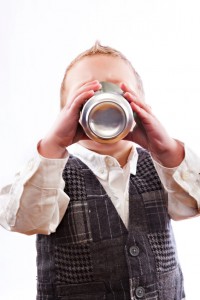We’ve all heard the warnings: soda pop is bad for us. Many studies have linked moderate-to-heavy soda-drinking to obesity, diabetes, high blood pressure, gastrointestinal cancers and other serious illnesses. Even light soda-drinking (defined as 2 or more sodas a week) was found in one study to be linked to pancreatic cancer, one of the deadliest and hardest-to-cure cancers. Diet sodas are also bad; they have been linked to even more disease than regular sodas, by some estimates; which makes sense, since they have an even greater number of toxic chemicals than regular sodas.
The fact is, for those of us who aim to eat natural diets and be conscientious consumers, sodas are a complete no-no. The ingredients are more times than not a long assortment of artificial chemicals and preservatives that don’t belong in anyone’s body — least of all, a child’s.
Previous studies had shown a link between soda-drinking and aggression, depression, and suicidal thoughts in adolescents. But a recent study, published in mid-August, 2013 in the Journal of Pediatrics, sought to examine the effects of soda consumption in young children.
Researchers from Columbia University, the University of Vermont and the Harvard School of Public Health followed almost 3,000 new moms from 20 American cities, and the women’s children, beginning at delivery. Follow-up interviews were carried out when the children were around 2. When the youngsters were 5, their mothers filled out a “Child Behavior Checklist,” where moms noted how many daily servings of soda their children drank, up to “four or more.”
The researchers found that even one daily soda was associated with increased undesirable behavior, and the more soda a child drank, the higher he or she scored on negative behaviors that the study measured:
- Children who drank between 1 and 4 servings of daily soda scored much higher on tests measuring aggression than kids who did not drink sodas
- Two or more servings were associated with higher scores for withdrawn behavior
- Children who had four or more servings scored higher on tests measuring attention problems
“With every increase in soda consumption, the association and the scores basically increased,” lead author Shakira Suglia, ScD, assistant professor of epidemiology at the Mailman School of Public Health at Columbia University, told Medscape Medical News after the study was published.
The researchers adjusted for candy or fruit juice consumption, and for various social factors, including maternal depression and domestic-partner abuse against the mother, and the results still held up; especially, Dr. Suglia noted, for aggression among children with the highest soda consumption.
Even one soda is one too many for young kids, and adolescent consumption of soda should also be minimized, Dr. Suglia added.
More soda is sold per capita in the United States than in any other country. But folks who value their health and that of their families know that drinking sodas is a big step in the wrong direction.
In the case of children, not only is a child who is allowed to drink sodas being toxified with the assortment of harmful chemicals present in the majority of sodas (including most of the name-brands that we all know), but also, the child is being deprived of nutrients that she or he very much needs, to grow. Necessarily, the more soda a child drinks, the less she is drinking of nutritious beverages that will help her grow and be healthy.
It’s very easy to shape a young child’s habits; but a parent must lead by example. Sodas can lure nearly everyone. Many people enjoy that crisp, bubbly, tangy taste that sodas have, and children are no exception. But as the more knowledgeable persons in the household, parents must teach their children what is and isn’t healthy. And the younger you start them on the right track, the better.
Ideas for Great-Tasting, Light Beverages that Are All-Natural
One great and natural substitute for sodas that everybody can enjoy is carbonated water with all-natural fruit juice. Pour about a third of a glass of juice (to avoid over-consumption of sugar), and fill the rest of the glass with carbonated water, or even regular water, topped off with carbonated water. This beverage tastes just like a soda, has the pretty, natural color of the juice you select, has antioxidants and vitamins … and lacks the empty sugar calories and/or toxic chemicals in all sodas.
Other than diluted natural juices or straight juice in moderation, a young child needs to drink plenty of milk for growing bones and teeth, and plain water for hydration. Water can be filtered, bottled, or in a pinch, if you live in a big city where the tap water tastes bad, let the tap water sit in your refrigerator in an open container for an hour or more, to dissipate some of the chlorine taste. Squirt some natural lemon juice, and you have a healthy, tangy, refreshing beverage with no sugars, and antioxidants that will repair body tissues and fight disease. Add a little raw or brown sugar, and you have delicious, natural, nutritious lemonade (what kid doesn’t love lemonade?).
No matter what the reason, whether lower price, convenience or an acquired taste, soda pop should never be an option for a child of any age. Nor, for that matter, for the parents.
By Lisa Pecos
